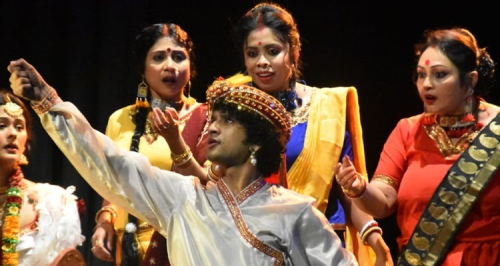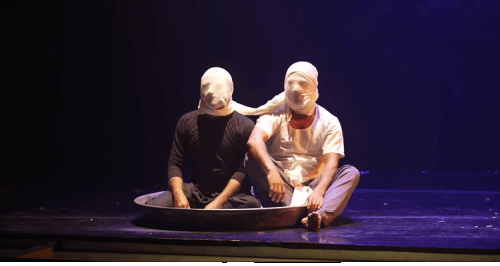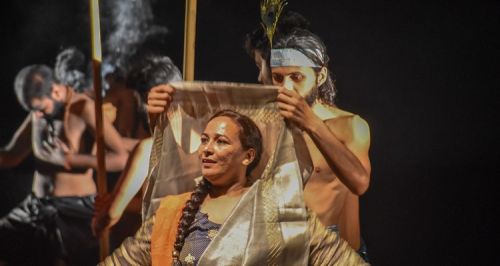Musings From a Well-Heeled Theatre Person But a First Time META Selection Committee Member!
However diverse our culture, our theatre draws from two basic premises, one between two to three thousand years old, Natya Sashtra. The other being 200 years old, the Western theatre form that emerged in the salons of the British colonials introducing proscenium theatre and giving urban theatre a voice. Our iconic Parsi Theatre then took it forward in a way that brought back our “Indianness” but within a similar format.
In the entries this year, I saw what might be called a seesaw. One end trying hard to keep the status quo with productions that stuck to time tested formulae with little or no innovation: regional language productions with the large dose of folk and classical music and dance forms; urban theatre, whose productions used the static box set and the traditional way of emoting on stage.
Then at the other end, both Indian vernacular and English language productions that experimented and mingled traditional and new forms with an honesty that resulted in seamless story telling on stage. These are the productions that will take us forward.
There is a danger though in veering away from the traditional in order to innovate. It has brought about a generation of actors who most often cannot handle text: who have no training in using and understanding words, phrases and sentences with their nuances; who are not aware that even the most basic dialogue has to be delivered with a stage presence backed with some training and a deep understanding of the craft. In staying away from a script and devising work, it is often forgotten that there is an art to devising. This art although looks casual, but it has to be cultivated, requires training and also leads to some semblance to a script, so that the final performance is for the audience and is not a self-indulgent piece of work.
Most of the productions though, were based on new scripts. This is a welcome trend but herein lies another danger. If a script is not work shopped through several drafts and the production of it is directed and in some cases also acted, by the playwright, then a lack of independent feedback may again lead to a self-serving piece of work.
I conclude with a question that is always on my mind: what will be the history of Indian theatre from the 21st Century onward? What is the future of a theatre that does not leave behind a body of well written dramatic scripts? What will there be for future theatre generations to perform to and to innovate from?
More platforms such as META, will certainly help to build this legacy.
Arundhati Raja
Artistic Director, Jagriti Theatre
Bangalore





Leave a reply